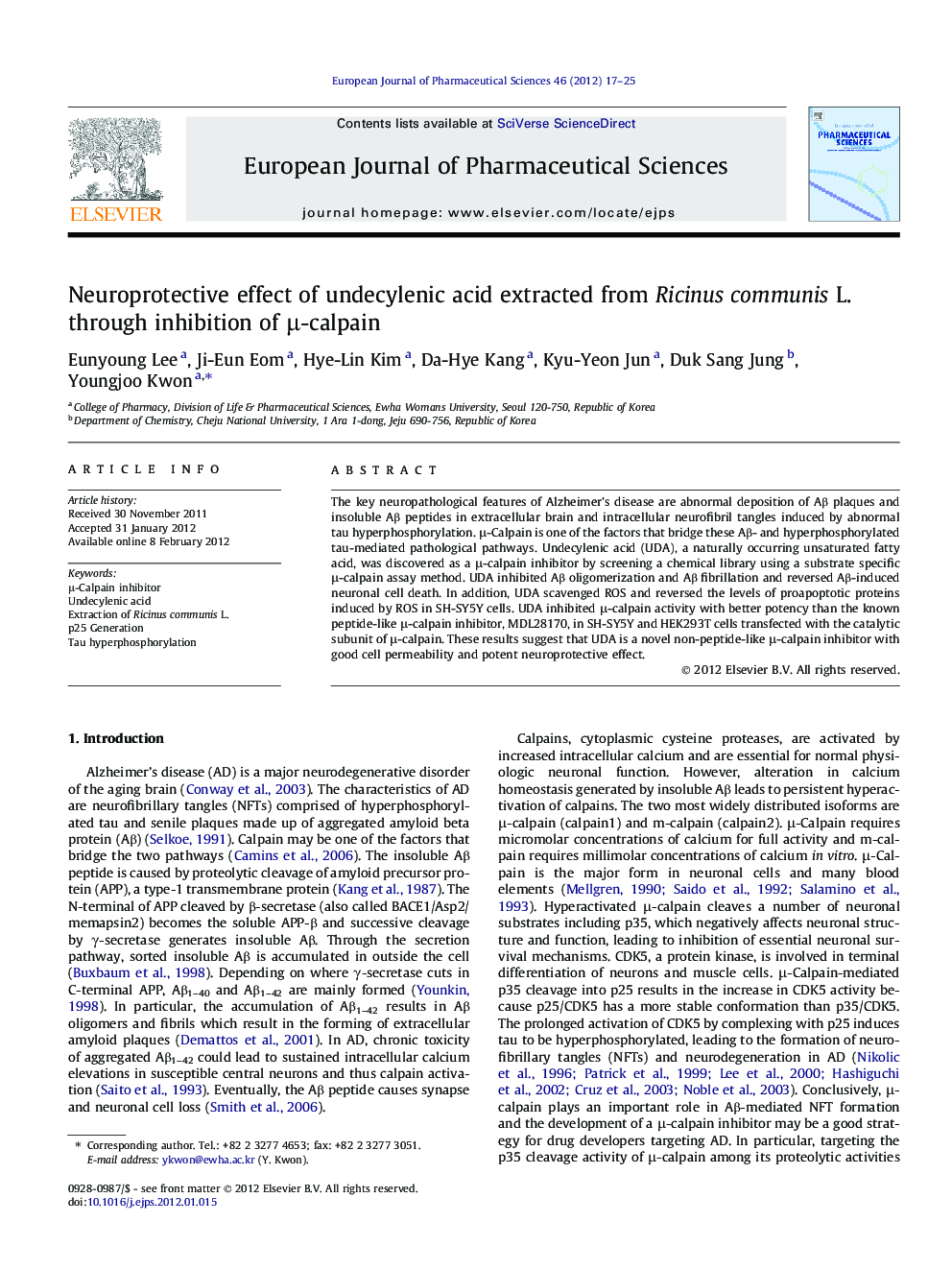| Article ID | Journal | Published Year | Pages | File Type |
|---|---|---|---|---|
| 2481147 | European Journal of Pharmaceutical Sciences | 2012 | 9 Pages |
The key neuropathological features of Alzheimer’s disease are abnormal deposition of Aβ plaques and insoluble Aβ peptides in extracellular brain and intracellular neurofibril tangles induced by abnormal tau hyperphosphorylation. μ-Calpain is one of the factors that bridge these Aβ- and hyperphosphorylated tau-mediated pathological pathways. Undecylenic acid (UDA), a naturally occurring unsaturated fatty acid, was discovered as a μ-calpain inhibitor by screening a chemical library using a substrate specific μ-calpain assay method. UDA inhibited Aβ oligomerization and Aβ fibrillation and reversed Aβ-induced neuronal cell death. In addition, UDA scavenged ROS and reversed the levels of proapoptotic proteins induced by ROS in SH-SY5Y cells. UDA inhibited μ-calpain activity with better potency than the known peptide-like μ-calpain inhibitor, MDL28170, in SH-SY5Y and HEK293T cells transfected with the catalytic subunit of μ-calpain. These results suggest that UDA is a novel non-peptide-like μ-calpain inhibitor with good cell permeability and potent neuroprotective effect.
Graphical abstractFigure optionsDownload full-size imageDownload high-quality image (159 K)Download as PowerPoint slide
